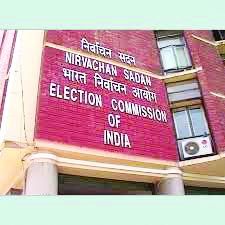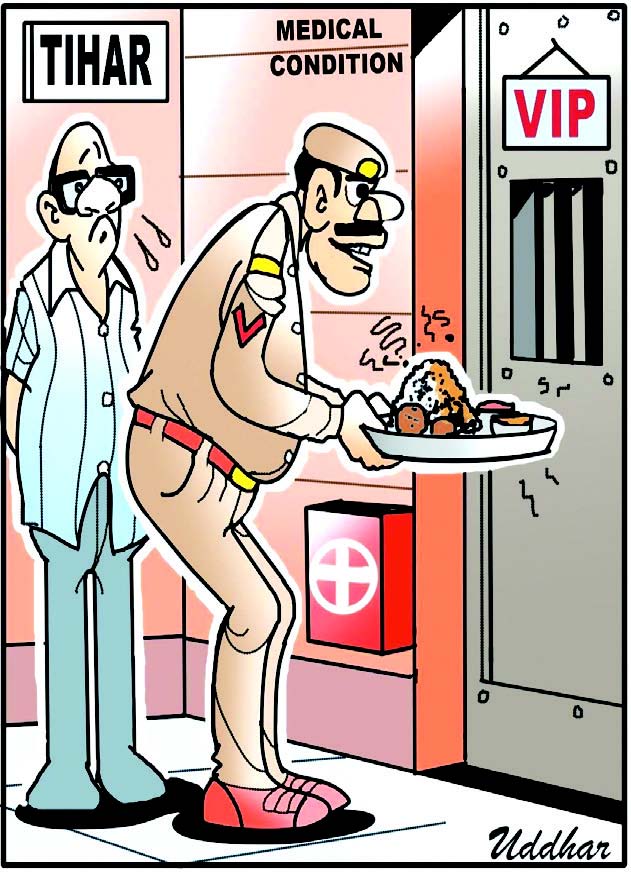
When a society slips into a dysfunctional mode, it’s acche din for the crooked. Goans have submitted themselves to abuses and violence from their governments, thereby becoming prisoners and hostages of lop-sided policies and corrupt governance in their own home land. How else can one explain the wild celebrations in Goa which were permitted in total disregard for public health safety during the Christmas and New Year, even after the third wave of Covid had struck and the neighbouring States had imposed curfews? It reflects the extent to which citizens have politically compromised themselves. Or, are Goans now in a situation wherein, beggars can’t be choosers?
The bhivpachi kainch goroz na! mantra adopted by the government is a polite way of saying care-a-damn for the people’s rights, sentiments and security. It’s no different from the insensitive question of the Prime Minister, did they die for me?, In the context of the farmers’ deaths during the agitation over the farm laws, as alleged by the Governor of Meghalaya.
The lawlessness creeping into Goa is now increasingly visible on the roads, footpaths, beaches and river fronts. The attack by non-Goan thugs on a prominent restaurant in the coastal belt during the Christmas week is perhaps the trailer of what is yet to follow, if the vulgar culture from the cow belt spilling into Goa is not arrested here and now. How can a Goa colonised by casinos, drug peddlers, matka bookies, land mafia and goons ever dream of a clean and healthy politics?
The hullaballoo about saving Goa is nothing beyond a denial which results in a blame game between the people and the politicians. Rumours and false prophets shape the political preferences of the selfish Goan. The voices of sanity, if any, get drowned in a tsunami of money power and amplified noise. After selling the jumla of zero corruption till 2014, the madness is now diverted to defections; the solution for which actually lies in strengthening the laws and punishing the traitors rather than targeting the political party. The confusion and disgust expressed by Goans over the state of social and political affairs appears superficial. The sosegado (laid back) culture lets the double engine of corrupt and communal governance have its way.
The political confusion arises from the community’s tendency to compartmentalise and treat issues in isolation, instead of targeting the source and acting unitedly. While intellectuals prefer to see the political problem in Goa as the outcome of a social transformation, probably the psychological and spiritual angle is ignored; a psychological crisis and moral decay in society. Is the thinking and behaviour of citizens in Goa’s politics to be considered as normal or abnormal, healthy or unhealthy, progressive or regressive?
Goa’s politics appears more like a dance of the money craving and power drunk politicians with a co-dependent electorate. It’s plain narcissism and co-dependency at play. Co-dependency is described as “a disorder of a “lost self.” Co-dependents lose their connection to their innate self. Instead, their thinking and behavior revolve around a person, substance, or process.” This is the type of loyalty and tolerance from citizens which encourages the politicians to betray people’s mandates and abuse power. Is the politician-voter dynamics any different from that of an alcoholic or drug addict holding sway over his/her family, employer and friends to feed his/her addiction?
Changing faces and political parties is not the solution to Goa’s political rot. The reshuffling or the realignment of filthy politicians and disguised divisive ideologies packaged under new labels of political alternatives cannot be considered as political change. The citizens must realise that providing basic infrastructure and social welfare measures is the constitutional duty of any government and a constitutional right of citizens to get it. It’s not a privilege or gift given by particular political parties and politicians which has to be earned by electing them to power.
With the State reeling under a huge fiscal debt and an overdose of destructive development, political parties need to be telling the electorate about what concrete legislations and policies will be taken up to reverse this pathetic situation. Any political alternative cannot be about further worsening the fiscal situation by promising freebies, doles and low interest easy loans, including development which destroys the environment and culture. The alternative needs to spell out how the lost pride of Goa will be restored and the constitutional space of Goans in shaping the destiny of their State will be respected.
So also, given the rise of toxic nationalism in the country, it is equally important to see through the camouflaged ideologies of political parties. The toxicity in national governance is largely encouraged by the endorsement it gets in the State elections. Voting for the angelic face of a candidate and ignoring the hidden toxic ideology of the party he/she represents is suicidal. Let’s not forget that it’s the party whip which ultimately prevails over its elected representatives when it comes to controversial legislations and policies. It is rare to see any MLA or MP, once elected, taking the risk to challenge the whip or resign in protest against the unprincipled and destructive legislations pushed by their political party.
The agenda for elections in Goa needs to be driven by the people, and not the other way round by political parties and strategists. The desired political change needs to begin with the Goan electorate, by first breaking free from the cycle of enslaved thinking and behavior; a mental overhauling.
(The author is a social activist who has been a member of the Panchayat)
